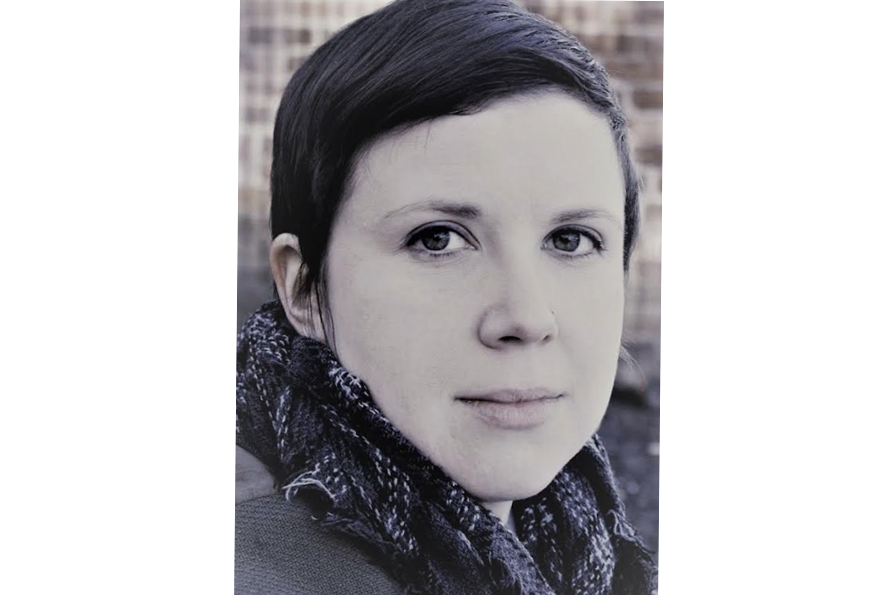
In a recent review of Catriona Wright’s new book in Streeters, Eric McMillan wrote: “With their mixture of offbeat personalities, horrid situations and entertaining writing, Difficult People contains some of the most engaging new stories I’ve read for quite some time.”
The endorsements on the back cover also confirm the collection has a lot to offer:
“A remarkably brave, sexy, sophisticated collection fueled by brilliant language and wicked humour.” – Barbara Gowdy, author of Little Sister
“Deft, dark and unflinching, Catriona Wright’s work is stand-up comedy for the mind.” – Emily Schultz, author of The Blondes
What follows is a short interview with the author about her new collection.
Do you know how a story will end before you begin?
Never! Stories always start with voice and character for me, and I let that carry me through into some kind of ending. I’ve started far far more stories than I’ve ever finished. One day I’ll get to that lonely folder full of half-finished drafts…
Do you draw your fiction from current events or social climates of our modern world?
Sometimes. One story in particular, “Content Moderator”, is directly inspired by current events. As a sessional lecturer, I was already interested in precarious work and exploring the psychological impacts of continuous career uncertainty. As a result, I gravitated towards news items about labour practices in other fields. There were recurring articles around this time about working conditions at some technology companies (here’s an example). I merged these two worlds—academia and the tech industry—to create “Content Moderator.”
What are some short story collections you absolutely recommend?
So many! Bad Behaviour by Mary Gaitskill, We So Seldom Look on Love by Barbara Gowdy and Birds of America by Lorrie Moore are my all-time favourites.
Three recent collections that I impressed me are The Doll’s Alphabet by Camilla Grudova, Homesick for Another World by Ottessa Moshfegh and Unclean Jobs for Girls and Women by Alissa Nutting.
You just published your debut poetry book – a year or so later, a debut story collection? What is next?
Nothing planned for now. I’ve been writing a few new poems, and I want to write a novel at some point. But for now, I’m taking a writing vacation and trying not to feel overwhelming guilt about my lack of productivity.
How important are literary magazines to writers?
I can’t speak for everyone, but they’ve been important to me. I can still remember being sixteen and receiving my first acceptance letter from The Claremont Review. I was convinced I had arrived. Next stop: book! That’s not what happened of course. Over the next fourteen years, I received many more rejections than acceptances, but the process of reading and submitting to magazines, as tough as it could be sometimes on the ego, was a way for me to gauge what was working and what wasn’t in my own writing.
I’ve also worked for over ten years at The Puritan, first as a reader, then an Associate Poetry Editor and now as co-Poetry Editor. Reading through thousands of submissions has shown me the true range of poetry being written in this country, all the different possible inspirations and lineages, and through this extensive reading I’ve been able to refine what I want my own writing to do. Trying to see my work more objectively, through the eyes of a first reader or editor, has made me more ruthless about what work I deem strong enough to submit.
Do you find it more difficult to read fiction than poetry?
I guess I have different expectations of both forms. Fiction requires longer sustained concentration, which takes time, and that can be hard to find when I’m teaching and grading student work and am generally distracted. Poetry demands a deeper kind of attentiveness, but can be read in short bursts, like on the subway or on the toilet.
In terms of ‘reading’ as performance, I definitely find fiction more difficult, because generally I can’t get through a whole story, so I have to decide on an appropriate cliff-hanger or I have to start half-way through the story and fumble through some plot summary. Awkward. More awkward still is the question of dialogue. Should I do weird voices? Accents? Should I leave off the speech tags (he said, she said)? Plus, if you’re reading fiction, you and the audience are stuck in that one story, and if it doesn’t resonate, that can be tough for everyone whereas with poetry if the audience isn’t digging a particular poem, you can both rest easy because another poem is on the way. Also, poetry for me is intrinsically an oral form, meant to be read aloud.
I find writing fiction much more difficult than writing poetry. In poetry you can let yourself go all the way into another dimension, but people expect fiction to have at least some relationship to reality.
Were you a difficult child or teenager?
I was a delight. A ray of sunshine. A brooding sun on the brink of explosion. Probably a better question for my parents or brother.
For more information on Difficult People, please visit the publisher’s website.
Catriona Wright is the author of the poetry collection Table Manners (Véhicule Press, 2017) and the short story collection Difficult People (Nightwood Editions, 2018). Her short stories have appeared in Geist, Joyland, Grain, The New Quarterly, and Room. Her poems have appeared in Prism International, Prairie Fire, Fiddlehead, and Lemon Hound, and they have been anthologized in The Next Wave: An Anthology of 21st Century Canadian Poetry and in The Best Canadian Poetry 2015 & 2018. She is the poetry editor for The Puritan and a co-founder of Desert Pets Press.